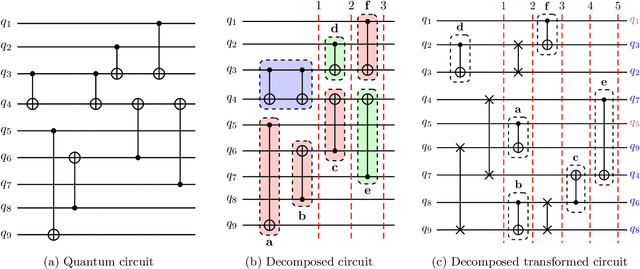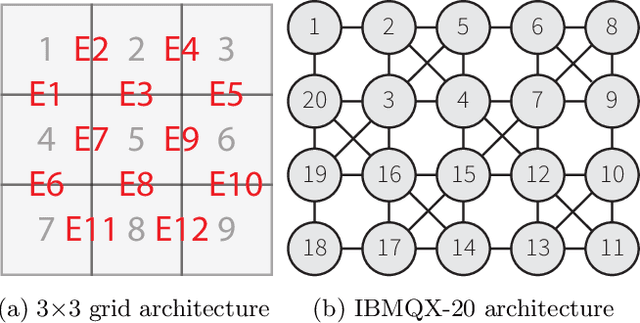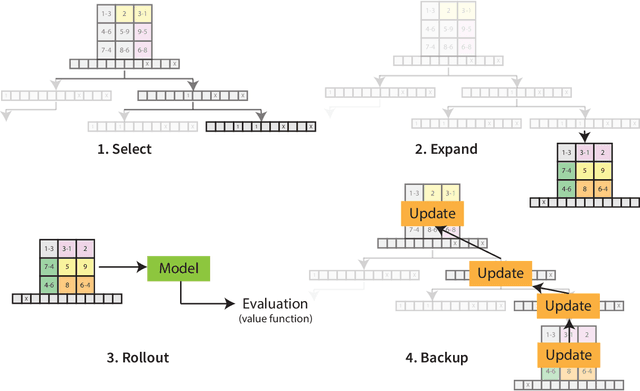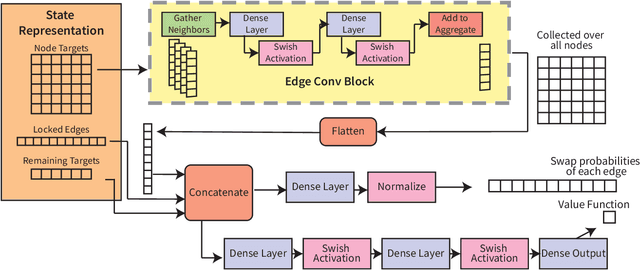Qubit Routing using Graph Neural Network aided Monte Carlo Tree Search
Paper and Code
Apr 01, 2021



Near-term quantum hardware can support two-qubit operations only on the qubits that can interact with each other. Therefore, to execute an arbitrary quantum circuit on the hardware, compilers have to first perform the task of qubit routing, i.e., to transform the quantum circuit either by inserting additional SWAP gates or by reversing existing CNOT gates to satisfy the connectivity constraints of the target topology. We propose a procedure for qubit routing that is architecture agnostic and that outperforms other available routing implementations on various circuit benchmarks. The depth of the transformed quantum circuits is minimised by utilizing the Monte Carlo tree search to perform qubit routing, aided by a Graph neural network that evaluates the value function and action probabilities for each state.
 Add to Chrome
Add to Chrome Add to Firefox
Add to Firefox Add to Edge
Add to Edge